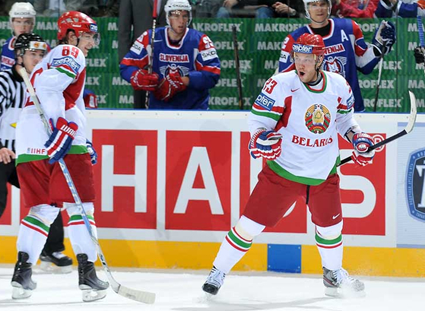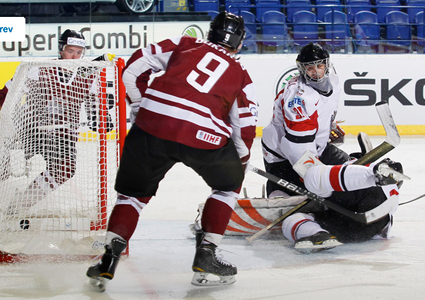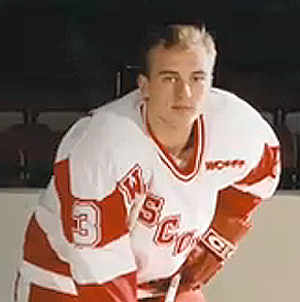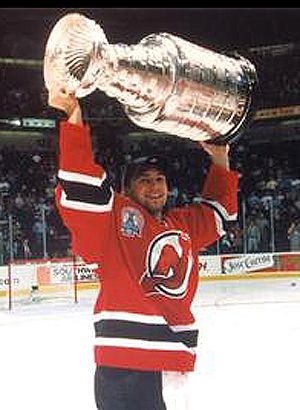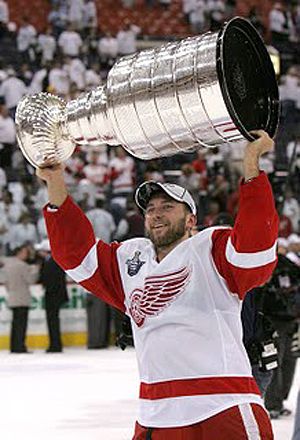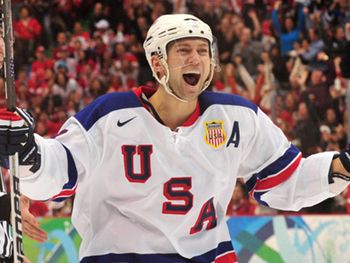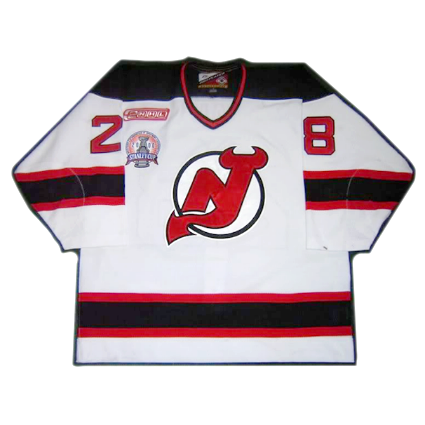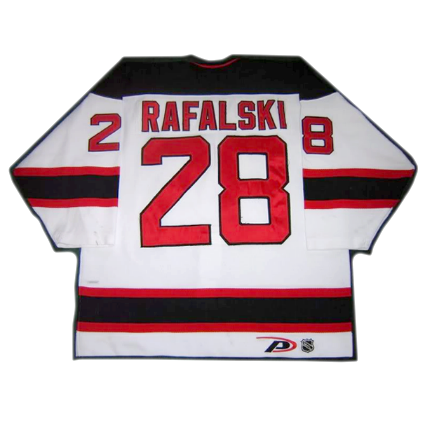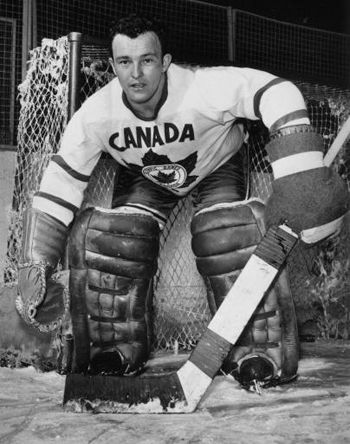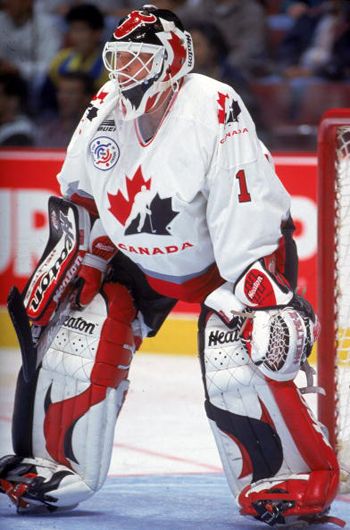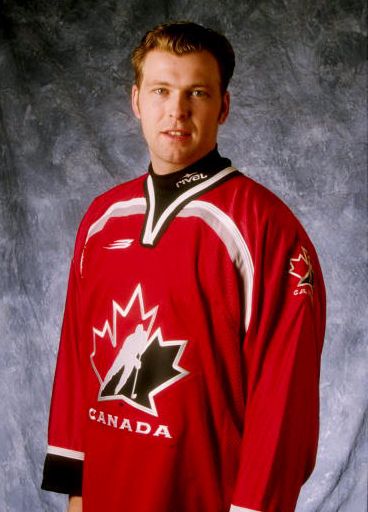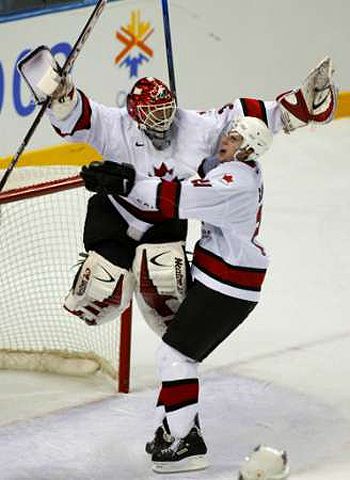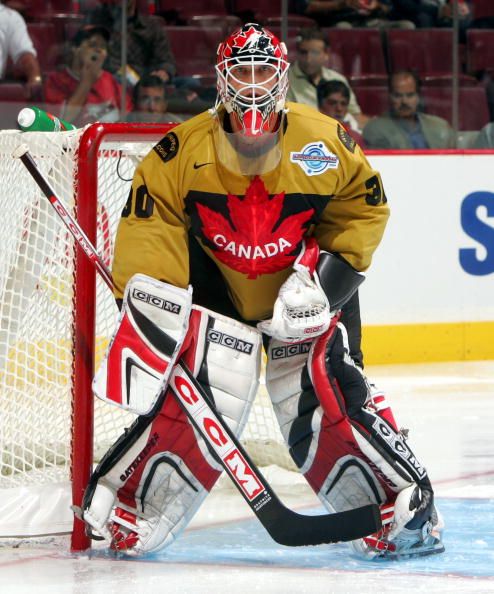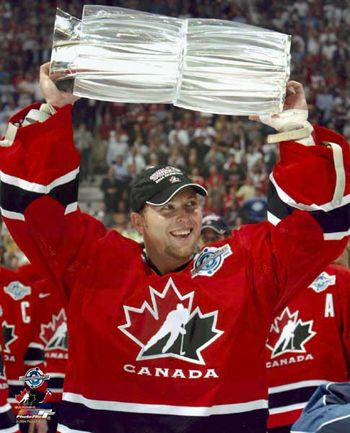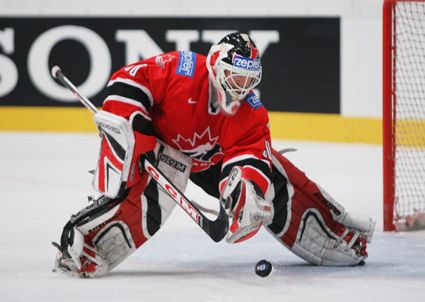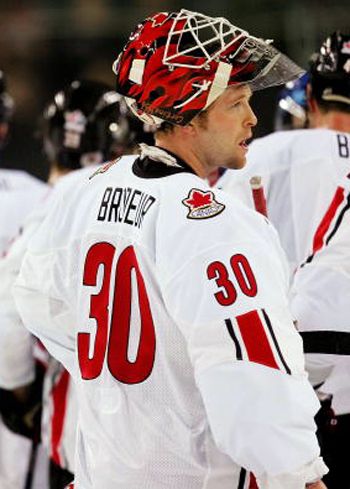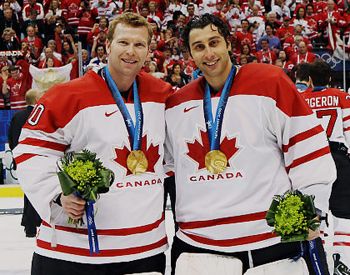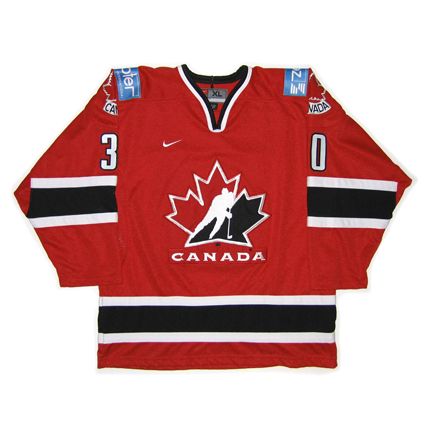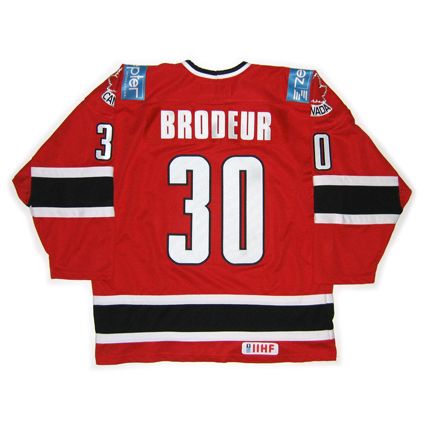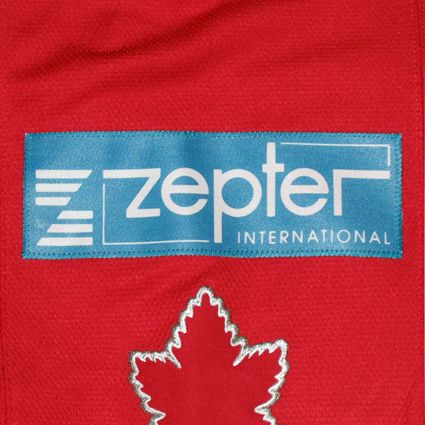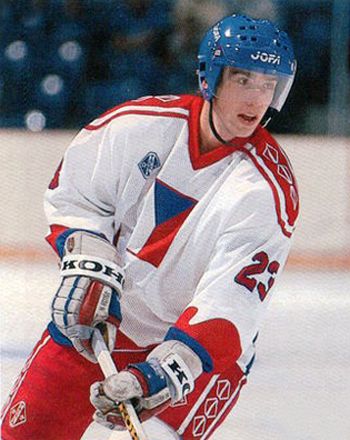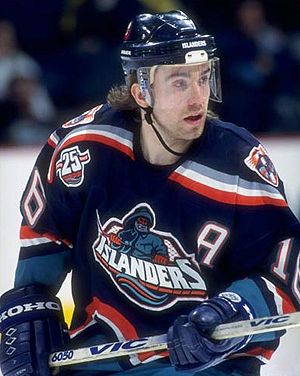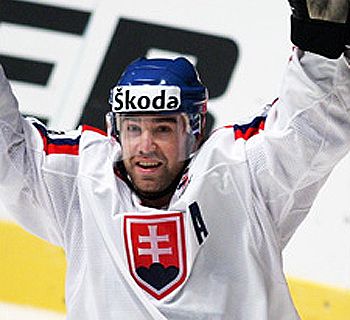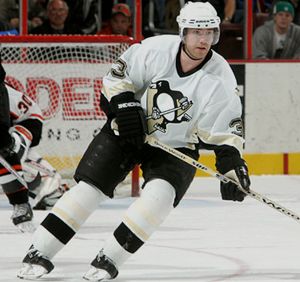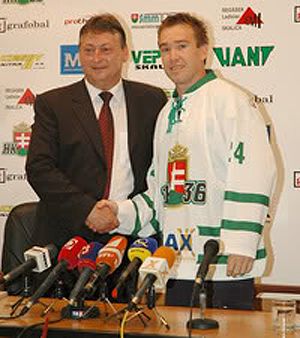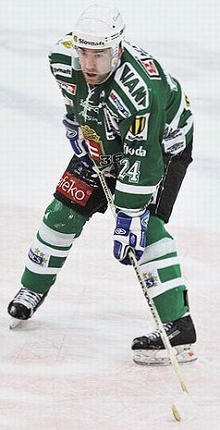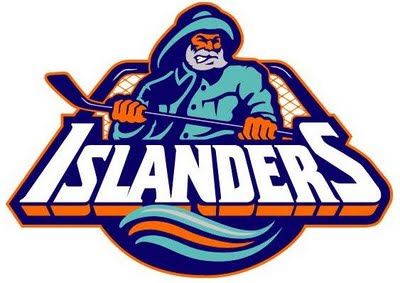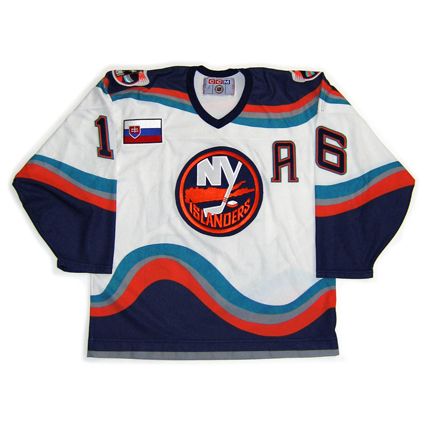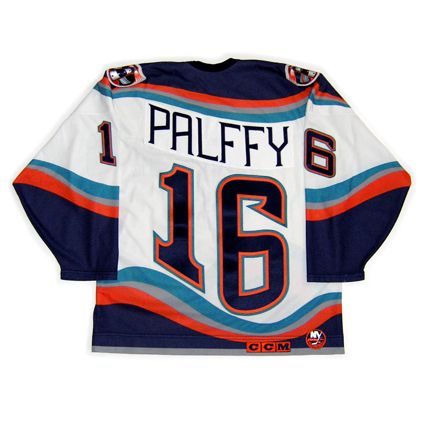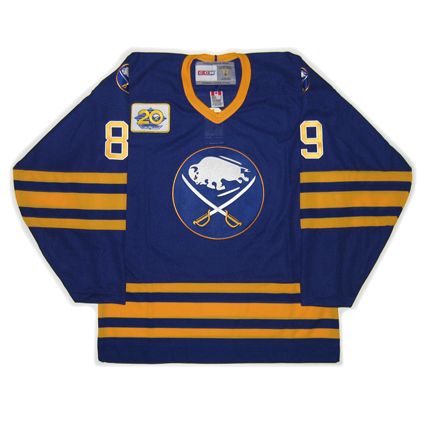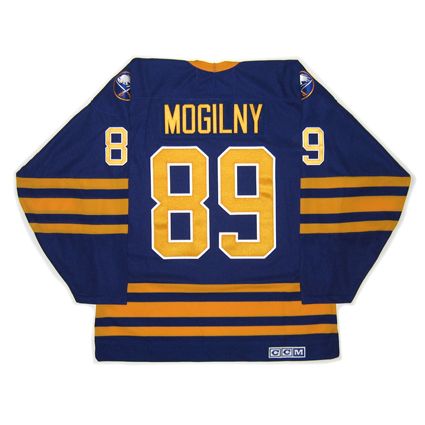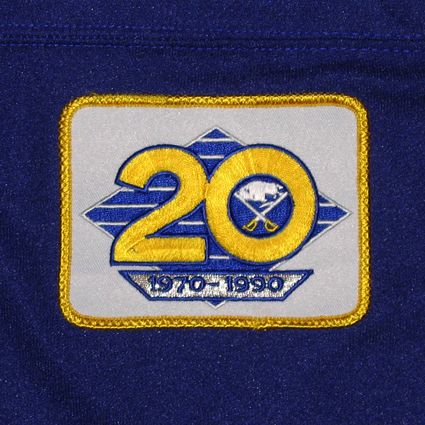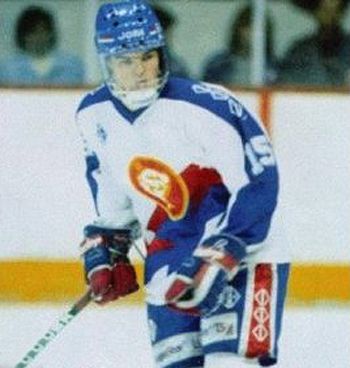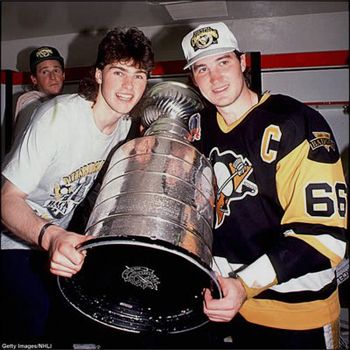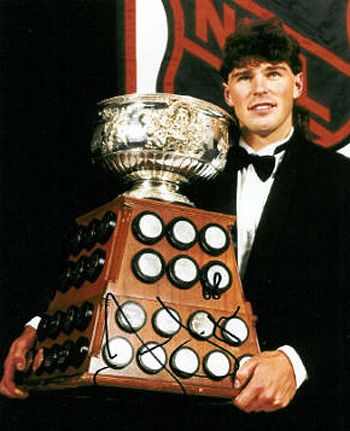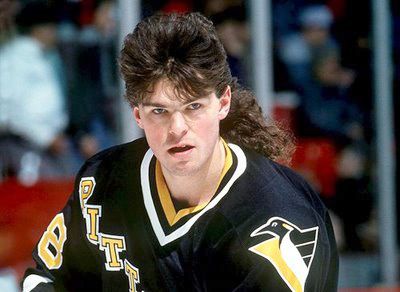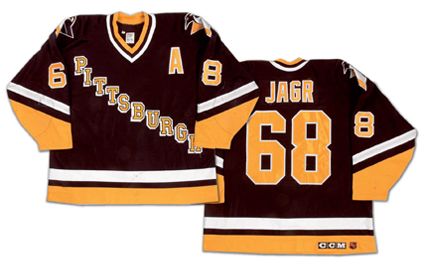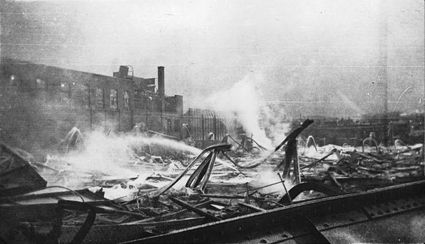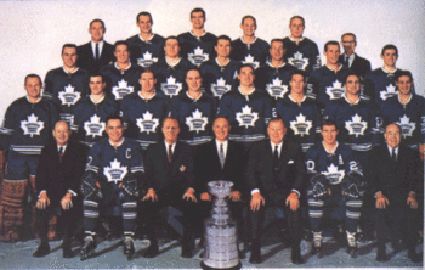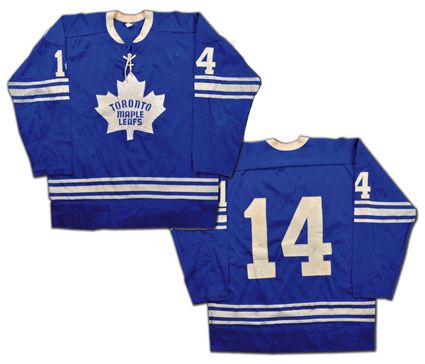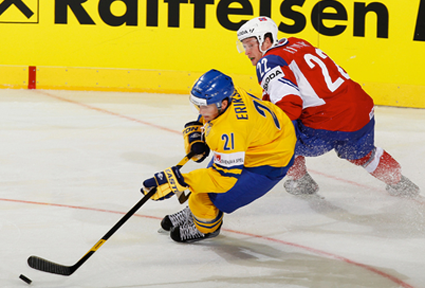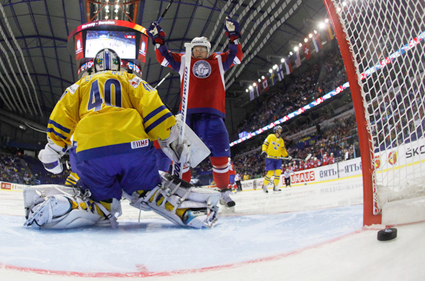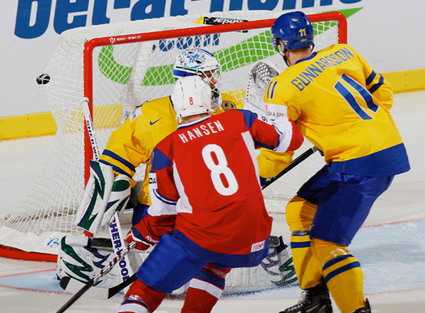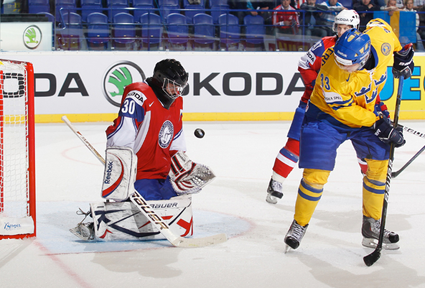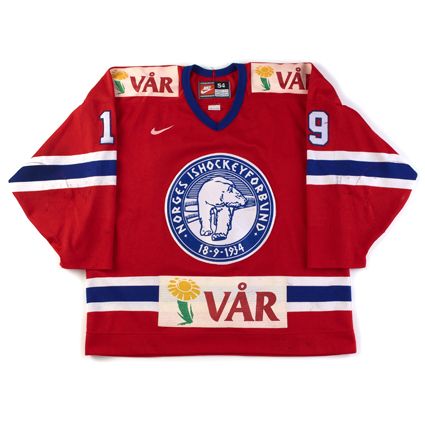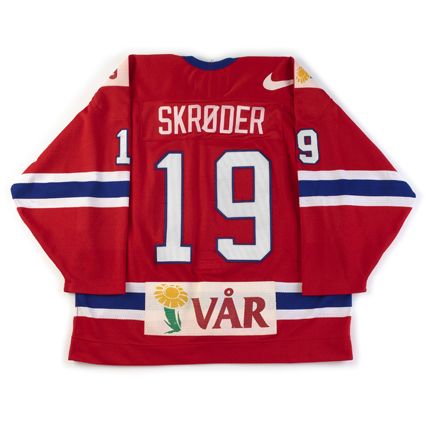Saturday, May 7, 2011
2011 IIHF World Championships Update
The 2011 IIHF World Championships continue today in Bratislava and Kosice, Slovakia. Highlights of the Preliminary Round were the performances of Germany and Norway.
In Group A, Germany shocked everyone with their tournament opening shutout of Russia 2-0. They then took care of hosts Slovakia 4-3 and outlasted plucky Slovenia 3-2 in a shootout to earn 8 of a possible 9 points to win their group for the first time in their history. Also advancing to the Qualifying Round were Russia, who rebounded by defeating Slovakia and Slovenia, and Slovakia, whose opening day 3-1 win over Slovenia proved to all the points they would need.
Group B saw Canada take care of business with regulation wins over Belarus and France before requiring overtime to down Switzerland, who also defeated France, in overtime, and Belarus before gaining a point against Canada to also advance. The surprise of the group was 15th ranked France's overtime win over #10 Belarus 2-1 to avoid the Relegation Round and move on to the Qualifying Round.
In Group C, Sweden's easy win over the United States gave them the top spot in Group C with just 7 points, the lowest total by a group winner. The USA's two wins over Norway and Austria put them through as well. Norway gained the final place thanks to their first ever win over Sweden in a shootout, and an easy 5-0 win over Austria, who were badly outplayed in the first round, scoring just one goal while giving up 13, by far the worst goal differential of all.
The only team to go undefeated in regulation play and earn the maximum nine points was Group D winning Czech Republic. Finland started strong with a three point win over Denmark, but needed a shootout to get past Latvia before losing to the Czechs in a subpar round for the Finns. The most dramatic game of Group D was the final game with a Qualifying Round spot on the line when Denmark surprised with a shootout win over Latvia.
While Qualifying Round play continues today, the most tense games will be the two Relegation Round games between Slovenia and Belarus in addition to Latvia taking on Austria.
Belarus and Slovenia looked to be on their way to safety when Belarus dominated the Austrians 7-2 and #19 Slovenia pounded #12 Latvia 5-2. But then a funny thing happened and Austria, who had now been outscored 20-3, got up off the mat and defeated Slovenia 3-2 in regulation before the Latvians delighted their raucous fans by easily winning 6-3 over Belarus.
Those two unexpected results left everyone in the group tied with three points. Today's mission is simply win and you're safe, even a win that requires additional time will suffice to protect your place in next year's World Championships in Finland and Sweden.
Slovenia takes on the higher ranked Belarus at the same time Latvia squares off against a desperate Austria with today's losers dropping down to Division 1 for 2012.
Action also continues today with a pair of games, one each in Group E and Group F, to determine the pairings for the quarterfinals which begin on Wednesday. In Group E, Russia takes on the still undefeated Czechs. Four of the six teams in each group advance to the playoffs, with the Czech Republic, Finland, Germany and Russia all set to advance, with only the final order still at stake.
Group F has Sweden taking on Switzerland today. Sweden will be looking to tie Canada on top of the group while the Swiss need as many points as possible in their effort to supplant Norway as the final team to advance, as Norway finishes their schedule on Monday against winless France while Switzerland faces a stronger team in the United States.
While only Canada is a lock to advance, Sweden and the United States seem safe, and will officially become so if Switzerland loses in regulation today. Norway comes next with 5 points, two ahead of the Swiss at 3, who still have today's game in hand. France will not advance past this round based on their single point in four games.
The quarterfinal pairings will be determined after Monday's six games which involve all the remaining teams. After a day off on Tuesday, the top four finishers in each group will be paired in a crossover with the teams in the opposite group, with the first place teams facing the fourth place team from the other group, while the second place finishers take on the third place team from the other group.
Update: Scores from today show the Czech Republic staying perfect with their 3-2 win over Russia. The Czechs have now locked up the top spot in Group E and will play the fourth place team in Group F, likely Norway or possibly the United States.
In Group F, Sweden defeated Switzerland 2-0, locking in quarterfinal berths for both Sweden as well as the United States. Switzerland must now win on Monday to have a chance to advance to the quarterfinals, as they have 3 points with Norway at 5. Norway has a relatively easy matchup with France on Monday, and even a single point for reaching overtime would put them through, as they hold the tiebreaker over Switzerland thanks to their earlier 3-2 win over the Swiss last Thursday.
The only way Switzerland can advance is by winning in regulation combined with a French win in regulation over Norway.
In the Relegation Round, there was not much drama as Belarus dominated Slovenia 7-1, sending Slovenia down to Division 1 for next season.
Andrei Kostitsyn celebrates his goal today for Belarus
In the other game, Latvia cruised to a 4-1 win over demoted Austria. Those two relegated squads will be replaced by Italy and Kazakhstan for the 2012 World Championships in Finland and Sweden.
Roberts Bukarts scores for Latvia
Labels:
2011 World Championships
1999-00 New Jersey Devils Brian Rafalski Jersey
Brian Rafalski's career began like many other future NHLers, as he enrolled at the University of Wisconsin for the 1991-92 season, after which he was named to the WCHA All-Rookie Team. That same season he also participated in the World Junior Tournament for the United States.
The 1992-93 season saw him continue at Wisconsin as well as make a return appearance at the World Juniors. As he gained experience and confidence, his point totals began to increase, up from 13 to 23 for 1993-94 and nearly doubling to 45 for 1994-95, a season during which Rafalski was named WCHA Defensive Player of the Year and WCHA First All-Star Team and helped Wisconsin win the WCHA playoff title. Following the completion of his college career, Rafalski once more skated for the United States, this time at the World Championships.
Despite his noteworthy resume, Rafalski, at 5' 10", was considered too small and went undrafted by the NHL. Still eager to continue his hockey career, he joined Brynas IF in Sweden.
After one season in Sweden, he moved to HPK in Finland. There, he had a solid offensive season for a defenseman with 35 points in 49 games and was given the Pekka Rautakallio Trophy as Best Defenseman in the SM-Liiga.
Establishing a knack for choosing the right situation throughout his career, Rafalski joined HIFK of Helsinki and promptly won the league championship in 1998. He once again was named Best Defenseman in the league for the 1998-99 season while still with HIFK, as he scored 53 points, an average of a point per game. In a vote of the players, he was also awarded the Golden Helmet as the best player overall.
Having proven himself as a capable player, including being named by The Sporting News as the best hockey player in the world not playing in the NHL, Rafalski realized his dream on this date in 1999, as he signed a free agent contract with the New Jersey Devils, with whom he finally began the delayed start to his NHL career as a now 26-year-old rookie.
With the Devils, Rafalski was paired with team captain Scott Stevens, whose strong defensive skills allowed Rafalski the opportunity to take more risks in an effort to score, resulting in 32 points by season's end.
Once more, his change in clubs paid immediate dividends, as the Devils captured the Stanley Cup at the end of Rafalski's first season in the NHL, which included being named to the NHL All-Rookie Team. He was at least four and as many as seven years older than any of the other five members of the rookie team.
He would go on to play seven seasons with the Devils, which included another Stanley Cup championship in 2003 and an appearance in the NHL All-Star Game in in 2004 and a second one in 2007.
For the 2007-08, Rafalski signed with his hometown Detroit Red Wings in another change to a club that would, for the third time in Rafalski's career, end with a championship at the conclusion of his very first season with his new team. With the high powered Red Wings, Rafalski set a career high to date with 59 points in 2008-09 after back to back 55 point seasons.
Internationally, Rafalski was named to Team USA for the 2004 World Cup of Hockey and has played in three Olympics for the Americans, in 2002, 2006 and 2010, earning silver medals in both 2002 and 2010 as well as being named Best Defenseman of the 2010 tournament.
He is now 11 years into his NHL career despite the late start as a result of his going undrafted and more than proven the scouts wrong who thought him too small, as in addition to his three Stanley Cups, Rafalski now has scored over 500 regular season and 100 points during the NHL playoffs over the course of his career.
Today's featured jersey is a 1999-00 New Jersey Devils Brian Rafalski jersey as worn during the Stanley Cup Finals of his rookie season in the NHL.
Of note, this jersey has the NHL 2000 patch, which all the players wore that season, plus the addition of the 2000 Stanley Cup Finals patch, which was added to the Devils and Dallas Stars jerseys for the finals.
Also worth noting is that this jersey is a ProPlayer brand, who supplied jerseys to NHL clubs for only that one season.
Today's video segment begins with an interview with Rafalski while still a member of HIFK just prior to the 1999 SM-Liiga Finals while knowing he had already signed with New Jersey. There is also some very artistic footage of him eating a McDonald's hamburger.
Nest is a compilation of goals scored by Rafalski while playing in Finland.
Finally an interview with Rafalski as he talks about his career, starting with Wisconsin and how he ended up playing in Europe. It then continues with the time he has spent with soldiers and veterans of the armed forces.
Labels:
New Jersey Devils,
Rafalski Brian
Friday, May 6, 2011
2005 Team Canada Martin Brodeur Jersey
Born on this date in 1972, Martin Brodeur followed in his father's footsteps and began his international hockey career at the 1996 World Championships, seeing action in three games and posting a record of 0-1-1 as Canada won the silver medal.
Dennis Brodeur in goal for Canada during the 1956 Olympics
Later that same year he played for Canada in the inaugural World Cup of Hockey, playing in a pair of games with a record of 0-1-0.
Brodeur wearing the unfamiliar #1 during the 1996 World Cup of Hockey due to Bill Ranford wearing #30
Internationally, Brodeur was a next member of the 1998 Canadian Olympic team in Nagano, Japan, but did not see any game action during the tournament.
Brodeur wearing the 1998 Team Canada Olympic jersey
When the Olympics arrived again four years later in 2002, following an opening game loss for the Canadians, Brodeur became the starting goaltender for the Canadians as they beat Germany and tied the Czech Republic before getting on a roll in the Final Round, where they defeated Finland 2-1, destroyed Belarus 7-1 and captured the gold medal, Canada's first in fifty years, with a 5-2 defeat of the United States.
Brodeur celebrates Canada's first gold medal in 50 years
Brodeur was again Canada's number one goaltender for the 2004 World Cup of Hockey, leading them to the championship with a 5-0 record and victories over the United States, Slovakia, Russia, Slovakia again and Finland in the championship final.
Canada began the 2004 World Cup by wearing the 1920 Winnipeg Falcons throwbacks
Brodeur lifts the 2004 World Cup trophy
Thanks to the 2004-05 NHL season being lost due to the lockout, Brodeur was available to play for Canada in the 2005 World Championships, an event he had not competed in for nine years due to his annual NHL playoff responsibilities with the New Jersey Devils. Brodeur put up a 5-2 record in 7 starts for Canada, defeating Latvia and the United States in Group B play, a loss to Sweden and a narrow 2-1 win over Ukraine in Group F before eliminating Slovakia in the quarterfinals and Russia in the semi-finals before losing 3-0 to the Czech Republic in the gold medal game, leaving Canada with the silver.
Brodeur wearing the same jerseys as the 2004 World Cup, but with the addition of sponsorship patches on the shoulders, a regular feature of jerseys worn during the World Championships
Brodeur was once more back on Olympic ice, this time in 2006 in Torinio, Italy. Canada began the tournament in good form, defeating Italy 7-2 with Brodeur in goal before defeating Germany 5-1. Brodeur was back in net for the surprising 2-0 upset at the hands of Switzerland. Canada next lost a second consecutive game to Finland before Brodeur got Canada back on track with a 3-2 defeat of the Czech Republic to finish Group A in third place. Canada's tournament ended in the quarterfinals with Broduer in goal, as they lost to Russia 2-0. Brodeur finished his tournament with a 2-2 record in four starts, as Canada failed to score a single goal in both of Brodeur's losses.
Brodeur wearing Nike's new Swift jersey at the 2006 Olympics
His most recent international experience came in the 2010 Olympics in Vancouver. Brodeur was in goal for Canada's 3-2 shootout win over Switzerland, avoiding a repeat of their 2006 upset at the hands of the Swiss. They then lost 5-3 in a scintillating game against the United States. Seeking a change after their lackluster group play, Canada went with Broduer's several time international backup Roberto Luongo (2004 World Cup of Hockey, 2005 World Championships and 2006 Olympics), who guided Canada to another Olympic gold medal, Brodeur's second.
Brodeur and Luongo after receiving their gold medals in 2010
Brodeur's record in senior international games now stands at 29 games played, 17 wins, 7 losses and 2 tiesand a goals against average of 2.25, two World Championship silver medals, a World Cup championship and a pair of Olympic gold medals.
Today's featured jersey is a 2005 Team Canada Martin Brodeur jersey as worn by Brodeur in the 2005 World Championships which took place during the NHL lockout season of 2004-05. This style was first introduced for the 2002 Olympics and was worn through the 2005 World Championships.
Brodeur traditionally has been competing in the Stanley Cup playoffs since first breaking into the NHL, as the Devils have made the playoffs ever year of Brodeur's lengthy NHL career, save for 1995-96, the only other time he was able to compete at the World Championships.
Brodeur traditionally has been competing in the Stanley Cup playoffs since first breaking into the NHL, as the Devils have made the playoffs ever year of Brodeur's lengthy NHL career, save for 1995-96, the only other time he was able to compete at the World Championships.
This jersey features the traditional sponsorship patches on the shoulders as seen during the World Championships.
Here, Broduer speaks during in advance of the 2010 Olympics in Vancouver.
Labels:
Brodeur Martin,
Canada,
IIHF
Thursday, May 5, 2011
1997-98 New York Islanders Ziggy Palffy Jersey
Born on this date in Czechoslovakia in 1972, Zigmund "Ziggy" Palffy came of age at the ideal time, just after the fall of the Iron Curtain.
After a season in the Czechoslovakian Extraliga with HK Nitra, scoring 34 goals and 50 points in 50 games and earning a bronze medal in the 1991 World Junior Championships, scoring 7 goals and 13 points in 7 games, Palffy was drafted in the second round of the 1991 NHL Entry Draft by the New York Islanders.
Palffy as a member of the Czechoslovakia National Team
He remained in Czechoslovakia for two more seasons with Dukla Trencin, leading the club in points in 1991-92 with 47 points and adding another 26 points with an amazing 18 goals and 26 points in just 13 playoff games to lead Trencin to the league championship, their first championship since their founding in thirty years of trying. If that were not enough, the following season Palffy not only led Trencin in scoring with 38 goals and 79 points just 43 games, but won the league scoring championship in the process.
Now clearly ready to make the move to North America after dominating his domestic league, Palffy began his path to the NHL with a season with the Salt Lake Golden Eagles of the IHL in 1993-94, where he averaged exactly a point per game with 57 points in 57 games. He also made his NHL debut with the Islanders, seeing action in five games, but failed to impress by being held pointless. He did have a better showing at the 1994 Olympics, skating for the now independent nation of Slovakia following the breakup of Czechoslovakia at the start of 1993.
Palffy began the 1994-95 season with 33 games as a member of the Denver Grizzlies of the IHL, and after putting up 43 points in 33 games, he was recalled by the Islanders after the season began late due to the labor issues which delayed the start of the season. He would play in 33 games which included his first NHL points, finishing with 10 goals and 17 points.
Palffy hit his stride in 1995-96, which included a change in jersey number from 68 to 16, when he led the Islanders in scoring with 87 points and his first 40 goal season with 43. Following the season, as the lowly Islanders failed to make the playoffs, Palffy competed for Slovakia at the 1996 World Championships.
Palffy in the controversial "fishsticks" jersey. Note the italicized assistant captain's "A" used in the second half of the 1996-97 season.
Prior to the start of the following NHL season, Palffy once again skated for Slovakia in the 1996 World Cup of Hockey. The next season saw more of the same as Palffy reached 48 goals and 90 points to once more lead the Islanders in scoring as well as making his first NHL All-Star Game appearance. His final season on Long Island saw him limited to just 50 games, during which he scored 50 points. Following the season, the sixth in a row during which the once great Islanders would miss the playoffs, Palffy was again free to compete at the World Championships for Slovakia.
In a move that was unpopular with the already disgruntled Islanders fans, Palffy was traded to the Los Angeles Kings. His first three seasons with the Kings saw Palffy continue at a point per game average, including nearly equalling his career high, falling just one point short in 2000-01 with 89.
The 2001-02 season was particularly busy for Palffy, as he played in 63 games for the Kings, made a single appearance for Slovakia in the 2002 Olympics, although too little too late to help Slovakia escape the Preliminary Round due to a scheduling flaw that forced Slovakia to compete without the vast majority of it's NHL players for most of the round, and was a contributor to Slovakia's greatest hockey moment when they rebounded a few months later when they captured the gold medal at the 2002 World Championships after the Kings were eliminated in seven games in the first round of the NHL playoffs. Palffy assisted on Peter Bondra's gold medal clinching goal with less than two minutes remaining in the championship final.
Palffy celebrates Slovakia's gold medal in 2002
Another strong season in 2002-03 with the Kings saw him total 85 points as well as having a strong World Championships with 15 points in 9 games.
During the NHL lockout of 2004-05, Palffy split his time between HK 36 Skalica in Slovakia and HC Slavia Prague in the Czech Republic as well as making yet another appearance at the World Championships. For the 2005-06 season, Palffy signed as a free agent with the Pittsburgh Penguins, but retired unexpectedly halfway through the season due to a shoulder injury.
To the surprise of many, Palffy returned to active play after sitting out the rest of the 2005-06 season and all of the 2006-07 season when he rejoined HK 36 Skalica.
Now once more in top form after his year and a half away from the game, Palffy scored 75 points in 46 games in 2007-08 and added 24 more in 13 playoff games to lead Skalica to an appearance in the championship finals.
He raised his game once more in 2008-09, leading the league in goals with 52, 21 more than his next closest competitor! With his 47 assists added on, his 99 points in 53 games easily gave him the league scoring title.
One final season with HK Skalica had Palffy in top form with 53 points, although his was limited to 36 games. He also made his first appearance for the Slovakia National Team in five years when he participated in the 2010 Olympics in Vancouver.
His final NHL totals were 329 goals and 713 points in 684 games. Internationally, he played in 18 games for Czechoslovakia and later 49 games for Slovakia, scoring a combined 86 points during two World Juniors and a Canada Cup for the Czechs and five World Championships, a World Cup and three Olympics for the Slovaks.
Today's featured jersey is a 1997-98 New York Islander Ziggy Palffy jersey. This style jersey was first introduced in 1995-96 with the notorious and much ridiculed "fisherman" logo. The Islanders were in a state of turmoil at the time, having had a steep decline in competitiveness and several controversial personnel moves.
The Islanders "fisherman" logo
The fisherman jersey had the unfortunate double whammy against it, of not only replacing the jersey worn during the team's Stanley Cup dynasty, but arriving during a period of fan discontent with ownership and management, which led to the jersey and logo becoming the lightning rod for all of the fans anger and frustration.
During the 1996-97 season, the wave style jersey was paired with the classic Islanders logo as a hastily created "alternate" jersey in an effort to undo some of the damage done by the "fishsticks" jersey, as New York Ranger fans chanted at the Islanders while wearing the fisherman logo jerseys.
1997-98 saw the fisherman logo dropped completely and the club wear today's featured jersey full time for this jersey's final season prior to changing to a somewhat modernized version of their classic jerseys for 1998-99.
The "fisherman" jersey was worn with three distinctive fonts used for the assistant captain's "A", with the version on today's featured jersey being used for the 1997-98 season only.
Of note, the Slovakian flag on the chest of this jersey was applied just for the NHL SuperSkills Competition held at the 1998 NHL All-Star Game to promote the new World vs. North America format for that years NHL All-Star Game in advance of the first participation by NHL players at the upcoming 1998 Olympics in Nagano, Japan.
For more on the story of the "fishsticks" jersey, please see this post about it's creation and the controversial reception it received.
Our first video today shows Palffy wearing the original Islanders jersey as well as his original number 68.
Next is a collection of Palffy highlights while a member of the Los Angeles Kings.
Next, Palffy scores his 50th goal of the season to set a new Slovak Extraliga record in 2008-09.
Finally, Palffy scores just 12 seconds into the start of the first game of the 2008-09 Slovakian championship finals, only no one saw it because they were reading all the ads painted on the ice.
Labels:
New York Islanders,
Palffy Ziggy
Wednesday, May 4, 2011
1989-90 Buffalo Sabres Alexander Mogilny Jersey
On May 2, 1989, Alexander Mogliny, then just 20 years old, made a choice that would affect the rest of his life.
While in Stockholm, Sweden, having just completed winning a gold medal at the 1989 World Championships, Mogilny made the life changing decision to become the first Soviet player to defect, leaving behind his family but escaping the totalitarian rule of the communist system, and iron-fisted Soviet old school coach Viktor Tikhonov in particular, whom Mogilny felt would make his life not only at the rink, but outside of hockey, miserable for years to come due to his independent nature.
The story begins at the 1988 NHL Entry Draft when the Sabres, with one of their two picks in the fifth round, selected one of the most exciting young players in the world, Alexander Mogilny with the 89th overall pick. While many Soviet players had been chosen in the NHL draft before, it was generally in much later rounds when taking a flyer on a player unlikely to ever appear in an NHL game was worth the roll of the dice with an essentially meaningless pick.
Gerry Mehan, the Sabres general manager explains, "I would never have used the draft pick if I didn’t think he would be coming,” Meehan said. “The attitude then was, ‘There’s no way this guy is going to come out. He’s too big a young star.’ It was my view that it was inevitable that, sooner or later, the Russians were going to have to let their players come and play on a world stage other than the Olympics and the World Championship.”
At the beginning of 1989, former Sabre Don Luce, the club's Director of Amateur Evaluation, travelled to Anchorage, Alaska to to 1989 World Junior Tournament. There, Mogilny and linemate Pavel Bure, along with Sergei Fedorov, were finishing third and fourth in tournament scoring while leading the Soviets to a 6-1 record and the gold medal. Luce met briefly with Mogilny in Anchorage and gave him a business card, cementing Mogilny's decision to defect at the first opportunity.
That opportunity arrived four months later when the Soviets were given two days in Stockholm after winning the 1989 World Championship. Luce, at home in North America, received a phone call from a man who claimed to be Mogilny's agent, Sergei Fomitchev. Unsure if he was really in contact with Mogilny, he asked Fomitchev to have Mogilny repeat what he had said to him in Anchorage. Told then that he had not played very well, Mogilny had stated "I show you next game", prior to scoring a hat trick against Canada to clinch the gold medal.
After Mogilny repeated the phrase, Luce and Meehan were on a plane to Sweden three hours later, arriving midday on May 3rd. While waiting for Fomitchev to return from shopping, the got an urgent call saying Mogilny's defection had to happen right away because it would be his best opportunity to get away.
They met at a mall and drove off. The rest of May 3rd and the early part of this day in 1989, May 4th, were spent moving from hotel to hotel to avoid being found while Meehan worked with the U. S. Embassy to arrange the necessary paperwork.
At one point Mogilny, from the far eastern part of Russia where few players have originated from, attempted to call home and midway through the conversation the call was disconnected, giving rise to Mogilny's fears that the call had been traced and the authorities knew where they were.
They then abandoned their rental car and took a taxi to the airport later in the day, and once inside the security gates, their fears of the Soviet officials was over. Meehan remembers, “He asked me in his broken English, ‘Am I free now?’ " And I said, ‘Yeah, you’re free.’ And he went over and had a beer. He couldn’t believe it. He said ‘free’, he didn’t say ‘safe’. He said ‘free’. I found that to be kind of poignant.”
Fedorov defected less than a year later at the 1990 Goodwill Games in Seattle and shortly afterwards the Iron Curtain fell and Bure joined the NHL without having to defect.
During his rookie season in the NHL, wearing he number 89 presented to him by the Sabres owner Seymour H. Knox III in recognition of his place in the draft and year of his defection, Mogilny would play 65 games, scoring 15 goals and 43 points as he became acclimated to living in North America and learning a new language and culture. "It was a huge adjustment to come to the NHL. The language barrier was the toughest part. Lack of communication affected me both on and off the ice. It also took some time to get used tot he airline travel. I had to deal with a fear of flying," Mogilny recalled.
He would double his goal total the following season to reach 30 for the first time.
The arrival of Pat Lafontaine in Buffalo would give Mogilny a world class teammate to work with and his point totals took another jump upwards, finishing 1991-92 with 39 goals and 84 points and became the first Russian on an NHL All-Star Team. Given a year to work together and now fully integrated into life in the United States and the NHL, Mogilny had one of the greatest seasons in league history in 1992-93. He would score 127 points from 51 assists and a remarkable 76 goals in 77 games. His 76 goals remain tied for fifth all-time in a single season with Teemu Selanne and Phil Esposito.
With Lafontaine limited to just 38 games over the next two seasons, Mogilny was named team captain in his absence, the first European to ever captain an NHL club, but his production suffered as a result of the missing Lafontaine. He was then traded to the Vancouver Canucks and reunited with Bure for the 1995-96 season, in which he would score 55 goals and 107 points, the second highest of his career in both categories. After five seasons of diminishing point totals in Vancouver, from 107 to 73, then 45 twice, he was dealt to the New Jersey Devils late in the 1999-00 season, having previously enjoyed the most minimal playoff success to that point in his career, having only escaped the first round once in ten seasons.
Prior to leaving the Soviet Union, Mogilny had already, just ten days after his 19th birthday, won a gold medal at the 1988 Olympics and then added he World Championship gold just days before his defection. Now with the Devils, Mogilny would see his first extended playoff run, which would evetnually lead to a Stanley Cup championship. When he won the Stanley Cup with the New Jersey Devils, he became just the ninth player in history to join the Triple Gold Club.
The move to New Jersey was a positive one for Mogilny, as he would regain his scoring touch and exceed 40 goals for only the third time in his career, with 43 goals during an 83 point season and another run to the Stanley Cup Finals.
He would sign with the Toronto Maple Leafs for the 2001-02 season, where he would play for three seasons, including winning the Lady Byng Trophy in 2003 and scoring his 1,000th point in 2003-04, before returning to the Devils for the final season of his career in 2005-06 before retiring with 473 goals and 1032 points in 990 games.
Following his defection, Mogilny would never play for the Soviet Union again and suit up for Russia just once in the 1996 World Cup of Hockey, cutting short what was destined to be a fine, if not outstanding, international career.
When asked following his career about the reasons for his defection, Mogilny responded, “Why did I do it? I did it for freedom. If the bird can fly and the fish can swim, you have to be able to move around the world and be free and not watched constantly. If a human being doesn’t have freedom, that’s not life. It’s like living in a cage. To me, you might as well be dead.”
Today's jersey is a 1989-90 Buffalo Sabres Alexander Mogilny jersey from the greatest season of his career, his 76 goal campaign in 1992-93. This jersey features the Sabres 20th Anniversary patch worn in Mogilny's rookie season following his defection earlier that year.
This jersey also sports Mogilny's distinctive #89, which is based on the year of his defection from the Soviet Union.
In today's video section, an interview with Mogliny from the 1989 World Junior Championships in January, a few months prior to his defection in April after the World Championships. He sticks to the party line quite well, giving little hint as to what was to follow, or at least that's what the interpreter tell us...
Here is a look at the some of the career highlights of Alexander Mogilny.
Here, Mogilny scores his 70th goal of the 1992-93 season, only the seventh player to reach 70 in NHL history.
Speaking of the remarkable 1992-93 season, here is a brief feature story on the partnership between Mogilny and Lafontaine.
Labels:
Buffalo Sabres,
Mogilny Alexander
Tuesday, May 3, 2011
1994-95 Pittsburgh Penguins Jaromir Jagr Jersey
After turing professional with his hometown club HC Kladno in 1988-89, Jaromir Jagr got off to a slow start with just 6 points in 29 games. He gave a glimpse of what was to come with 12 points in 10 playoff games that season before catching NHL scouts attention the following season with 22 goals and 50 points in 42 games to lead Kladno in scoring and place 7th overall in the Czechoslovak First Ice Hockey League.
Jagr also made his mark at the 1989 European Junior Championships with 12 points in 5 games, the 1990 World Junior Championships where he finished second with 18 points in 7 games on his way to a bronze medal prior to earning another bronze at the 1990 World Championships, where he scored 5 points in 10 games playing at the senior level at the age of 18.
With that impressive resume, Jagr was selected 5th overall in the 1990 NHL Entry Draft by the Pittsburgh Penguins, the first Czechoslovak player drafted without having to defect first.
Immediately able to begin his North American career due to the changing face of European politics at the time, Jagr proved to be an immediate success and a key part of the Penguins, as he finished fifth in team scoring with 27 goals and 50 points. With the Penguins at full strength for the post season following the return of team captain Mario Lemieux, who only appeared in 26 regular season games, the Penguins went on a march through the playoffs, which concluded with the franchise capturing it's first Stanley Cup championship in 24 years. Jagr scored three goals during the playoffs to become, at age 19, the youngest player to score a goal in the Stanley Cup Finals.The following season Jagr raised his point totals to 32 goals and 69 points and was fourth in team playoff scoring with 24 points in 21 games as the Penguins repeated as Stanley Cup champions.
For the 1992-93 season, his game took a big step forward when he once more took a step forward with 34 goals, but a big leap with 60 assists, up from 37. His 94 points still only placed him fifth in team scoring in the explosive Pittsburgh lineup, led by Lemieux's league leading 160.
The 1993-94 season saw Jagr bump his personal best point total up to 99 on the basis of 32 goals and a then career high 67 assists to lead the Penguins in scoring for the first time with Lemieux limited to just 22 games due to injury.
The start of the 1994-95 season was delayed until mid-January of 1995 due to a 103 day lockout, which shortened the season to just 48 games. While awaiting the settlement of the labor issues in North America, Jagr returned to Kladno where he played in 11 games, as well as 7 games in Italy and one in Germany.
When the season did resume, Jagr was a dominant force on the Penguins, scoring as many goals in 48 games and he had the year before in 80, just two short of the league lead. He did however, rack up 38 assists to tie Eric Lindros for the league lead with 70 points for the season by adding an assist on Kevin Stevens goal at 18:05 of the first period of the final game of the regular season on this day in 1995 to become the first European to win the Art Ross Trophy on the basis of holding a 32 to 29 lead in goals over Lindros.
The next season Jagr would total 149 points, only to lose the scoring race to Lemieux's 161, although his 149 points would set a career high and set a record for European-born players as well as right wingers.
After Lemieux won the scoring title in 1996 and 1997, Jagr would go on to win the Art Ross Trophy four consecutive times from 1998 to 2001, winning the Pearson Award in 1998 and the Hart Trophy in 1999 in the process.
When Lemieux returned out of retirement, the financially struggling Penguins could no longer afford to keep both him and Jagr's salaries, and Jagr was dealt to the Washington Capitals in July of 2001, bringing an end to his days in Pittsburgh.
Today's featured jersey is a 1994-95 Pittsburgh Penguins Jaromir Jagr jersey from the season during which he became the first European-born player to lead the NHL in scoring.
Following their back to back Stanley Cup championships in 1991 and 1992, the Penguins debuted a brand new jersey set and modernized logo. The road jersey was a terrific blending of the original Penguins diagonally lettered jerseys from the 1967-68 season, done in the striping pattern similar to their blue 1974-75 jerseys, only now in their then current black and yellow colors and adorned with their new "robo-penguin" logo on the shoulders. This really sharp jersey was used from 1992-93 until 1996-97 until being replaced by the team's then alternate jersey.
Today's video highlight are Jagr's top ten goals while with the Penguins.
Jagr while with HC Kladno
Jagr also made his mark at the 1989 European Junior Championships with 12 points in 5 games, the 1990 World Junior Championships where he finished second with 18 points in 7 games on his way to a bronze medal prior to earning another bronze at the 1990 World Championships, where he scored 5 points in 10 games playing at the senior level at the age of 18.
With that impressive resume, Jagr was selected 5th overall in the 1990 NHL Entry Draft by the Pittsburgh Penguins, the first Czechoslovak player drafted without having to defect first.
Immediately able to begin his North American career due to the changing face of European politics at the time, Jagr proved to be an immediate success and a key part of the Penguins, as he finished fifth in team scoring with 27 goals and 50 points. With the Penguins at full strength for the post season following the return of team captain Mario Lemieux, who only appeared in 26 regular season games, the Penguins went on a march through the playoffs, which concluded with the franchise capturing it's first Stanley Cup championship in 24 years. Jagr scored three goals during the playoffs to become, at age 19, the youngest player to score a goal in the Stanley Cup Finals.The following season Jagr raised his point totals to 32 goals and 69 points and was fourth in team playoff scoring with 24 points in 21 games as the Penguins repeated as Stanley Cup champions.
For the 1992-93 season, his game took a big step forward when he once more took a step forward with 34 goals, but a big leap with 60 assists, up from 37. His 94 points still only placed him fifth in team scoring in the explosive Pittsburgh lineup, led by Lemieux's league leading 160.
The 1993-94 season saw Jagr bump his personal best point total up to 99 on the basis of 32 goals and a then career high 67 assists to lead the Penguins in scoring for the first time with Lemieux limited to just 22 games due to injury.
The start of the 1994-95 season was delayed until mid-January of 1995 due to a 103 day lockout, which shortened the season to just 48 games. While awaiting the settlement of the labor issues in North America, Jagr returned to Kladno where he played in 11 games, as well as 7 games in Italy and one in Germany.
When the season did resume, Jagr was a dominant force on the Penguins, scoring as many goals in 48 games and he had the year before in 80, just two short of the league lead. He did however, rack up 38 assists to tie Eric Lindros for the league lead with 70 points for the season by adding an assist on Kevin Stevens goal at 18:05 of the first period of the final game of the regular season on this day in 1995 to become the first European to win the Art Ross Trophy on the basis of holding a 32 to 29 lead in goals over Lindros.
Jagr poses with the Art Ross Trophy
The next season Jagr would total 149 points, only to lose the scoring race to Lemieux's 161, although his 149 points would set a career high and set a record for European-born players as well as right wingers.
After Lemieux won the scoring title in 1996 and 1997, Jagr would go on to win the Art Ross Trophy four consecutive times from 1998 to 2001, winning the Pearson Award in 1998 and the Hart Trophy in 1999 in the process.
Jagr sporting his famous mullet
When Lemieux returned out of retirement, the financially struggling Penguins could no longer afford to keep both him and Jagr's salaries, and Jagr was dealt to the Washington Capitals in July of 2001, bringing an end to his days in Pittsburgh.
Today's featured jersey is a 1994-95 Pittsburgh Penguins Jaromir Jagr jersey from the season during which he became the first European-born player to lead the NHL in scoring.
Following their back to back Stanley Cup championships in 1991 and 1992, the Penguins debuted a brand new jersey set and modernized logo. The road jersey was a terrific blending of the original Penguins diagonally lettered jerseys from the 1967-68 season, done in the striping pattern similar to their blue 1974-75 jerseys, only now in their then current black and yellow colors and adorned with their new "robo-penguin" logo on the shoulders. This really sharp jersey was used from 1992-93 until 1996-97 until being replaced by the team's then alternate jersey.
photo courtesy of Classic Auctions
Today's video highlight are Jagr's top ten goals while with the Penguins.
Labels:
Jagr Jaromir,
Pittsburgh Penguins
Monday, May 2, 2011
1966-67 Toronto Maple Leafs Dave Keon Jersey
On this date in 1967, the Toronto Maple Leafs defeated the Montreal Canadiens 3-1 to win the Stanley Cup in six games, bringing to and end the Original 6 era.
The NHL began in 1917 with four member clubs, the Montreal Canadiens, Montreal Wanderers, Toronto Hockey Club and Ottawa Senators. The Wanderers would only last six games before a fire burned down the Montreal Arena, an event which would cause the struggling club to call it quits.
The 1918 Montreal Arena fire
The Toronto franchise would be renamed the Arenas for 1918-19 and the St. Patricks in 1919-20, a season which would see the league expand to four clubs once again with the revival of the Quebec Bulldogs. That revival would last but one season before the club was relocated and became the Hamilton Tigers for the 1920-21 season.
The NHL would expand for the 1924-25 season to six clubs with the addition of the Montreal Maroons and the first club based in the United States, the Boston Bruins. If one were prone to split hairs, these six teams, the Bruins, Tigers, Canadiens, Maroons, Senators and St. Pats could be considered the true "Original 6".
The Hamilton franchise was dropped for 1925-26 and it's players transferred to a new club, the New York Americans. Additionally, a new franchise was granted to Pittsburgh, which was named the Pirates, bringing the league up to seven teams.
The following season was again one of change and expansion. A change in ownership in Toronto saw the St. Pats renamed the Maple Leafs mid-season and the Chicago Black Hawks arrived on the scene, along with the Detroit Cougars following the demise of the Western Hockey League. Those two clubs were stocked with the players from the Portland Rosebuds and Victoria Cougars. The New York Rangers, who would share Madison Square Garden with the Americans, were granted an expansion franchise as well. This brought the league now up to a full ten teams.
In 1930-31, the Pirates relocated to Philadelphia and became the Quakers, who would last just one season before folding, leaving the NHL with 9 teams. This scenario would be repeated in 1934-35 when the once powerful Ottawa Senators would relocate and become the St. Louis Eagles, who would also fold after a single season, bringing the number of clubs down to 8.
Also in 1930-31 the Cougars would change their name to the Falcons for two seasons before adopting the name Red Wings in 1933-34.
At the end of the 1937-38 season, the Montreal Maroons would drop by the wayside, lowering the number of clubs down to 7, the lowest number since 1926. Those seven clubs would carry on through the 1941-42 season, when the New York Americans, despite still playing in Manhattan, changed their name to the Brooklyn Americans in an attempt to win more fans. When that failed to work, the Americans ceased operations, a move which officially began the "Original 6" era in 1942-43.
Those six clubs, the Bruins, Black Hawks, Red Wings, Canadiens, Rangers and Maple Leafs would continue on unchanged through the 1966-67 season, 25 seasons in all.
During the Original 6 era, Detroit won the Stanley Cup five times, Montreal ten times, including five in a row from 1956 to 1960, Toronto nine times and Chicago once while the Rangers failed to win the cup despite the one in six odds.
In 1966-67, the Black Hawks finished first with 94 points, easily distancing themselves from Montreal at 77, Toronto with 75 and the final playoff qualifier New York at 72. As was the practice back then, Chicago did not draw the fourth place Rangers, but the third placed Maple Leafs, who upset the Black Hawks 4 games to 2 with all four of their wins by two goals. Montreal advanced to the finals by sweeping the Rangers in four straight.
Montreal looked to have the upper hand after winning Game 1 at home easily by a score of 6-2, but Toronto immediately responded with a 3-0 shutout behind Johnny Bower in goal. A thrilling Game 3 in Toronto saw the Maple Leafs win 3-2 in overtime. Before Toronto could exploit their home advantage Montreal took their turn winning one on the road, again by a dominating 6-2 score.
Back in Montreal, Toronto disappointed the home fans by putting Montreal on the brink with an easy 4-1 with Terry Sawchuk in goal, who took over for Game 4 when Bower was knocked out of the series with an injury.
When Game 6 in Toronto went the way of the Maple Leafs 3-1, the Maple Leafs hoisted the Stanley Cup and the Original 6 era came to an end as the league would expand by no less than six teams for the 1967-68 season, with clubs in Los Angeles, Oakland, St. Louis, Minnesota, Philadelphia and a return to Pittsburgh.
The 1966-67 Stanley Cup Champion Toronto Maple Leafs
Today's featured jersey is a 1966-67 Toronto Maple Leafs Dave Keon jersey. Keon led the Maple Leafs in scoring that season and was also named the winner of the Conn Smythe Trophy following their Stanley Cup victory.
This jersey style was introduced during the 1966-67 season in time for the Maple Leafs run to the Stanley Cup bearing a maple leaf which closely resembled that of the new Canadian flag introduced in 1965. This jersey would have a relatively brief lifespan, lasting through just the 1969-70 season.
Today's video selection is game footage of the Maple Leafs capturing the 1967 Stanley Cup, the final one of the Original 6 era.
Since 1967, the Maple Leafs have yet to win another cup, angering even their most ardent supporters.
Labels:
Keon Dave,
Original 6,
Toronto Maple Leafs
Sunday, May 1, 2011
1999 Norway National Team Per-Åge Skrøder Jersey
The upsets just keep on coming at the 2011 IIHF World Championships in Slovakia. A day following Germany's first win at the World Championships over Russia, Norway defeated Sweden for the first time at any level of IIHF competition dating back 61 years to Norway's first participation in 1950.
Today's video section is highlights of Norway's shootout win over Sweden at the 2011 IIHF World Championships, their first ever win against Sweden in 61 years.
During that time Sweden had won every single game at the World Championships (11 games), the Olympics (twice), the U-20 World Junior Championships (5 games) and the U-18 World Juniors (3 games). The only blemish on Sweden's perfect record was a tie at the World Championships in 1994, making Norway's record up until today 0-21-1.
Sweden must have assumed it was business as usual after taking a 3-1 lead after the first period a goal from Loui Ericksson followed by a pair from Patrik Berglund. Norway's Martin Roymark's power play goal at 8:06 evened the at 1-1 before Berglund's goals, the second one with a man advantage.
Swedish goal scorer Ericksson
Norway had a surprise for Sweden in the second period though. First they converted a late first period Sweden penalty into a power play goal one minute into the second period to pull within one when Morten Ask scored on a shot from the point though a tangle of bodies.
Marius Holtet continued the Norwegian special team's performance with their third power play goal on four tires at 13:45 of the second period to complete the comeback when he fired a wrist shot into the top of the net. The period ended with the game tied at 2-2 despite Sweden outshooting Norway 26-10 at that point.
A feisty third period saw a a pair of roughing minors handed out twice within a minute and a half before Ask was whistled for hooking at 48:14. Sweden converted for their second power play goal at 9:37 to put Sweden back on top 4-3.
Norway was not about to go away quietly this time though, and Anders Bastiansen pounced on a loose puck and fired it between goaltender Erik Ersberg's legs for the equalizer at 15:06.
Neither team could produce a game winner in regulation time and the game moved into overtime, with Sweden starting on the power play thanks to a late penalty on Norway with just 11 seconds left in regulation.
Norway successfully killed off the penalty to begin the overtime and, despite Sweden outshooting Norway 6-2 in the extra period, the overtime passed without a game winner.
From there the game moved to "Game Winning Shots" as the shootout is called by the IIHF. Per-Åge Skrøder scored on the first shot for Norway while Lars Haugen saved Eriksson's attempt. Mathis Olimb then gave Norway a huge advantage when he scored on Norway's second attempt, putting all the pressure on Berglund, who needed to score to keep the Game Winning Shots going. When Berglund missed to the right, Norway had secured it's historic victory by a final score of 5-4.
Ersberg made 42 saves for win, as Sweden outshot Norway 46-20.
Ersberg makes one of his 42 saves for Norway
Following the United States 5-1 win over Austria, the Group C standings have the US on top with 3 points for their regulation win, Norway with 2 for their overtime win, Sweden at 1 for an overtime loss and Austria with zero.
Norway next plays the United States on Monday, which will be aired live by Versus in the United States at 10 AM Eastern Time. Sweden and Austria then meet later the same day.
Today's featured jersey is a 1999 Norway National Team Per-Åge Skrøder jersey.
Skrøder began his professional hockey career in Norway in 1994 before moving to the Swedish Elitserien in 1998. He has played for Frölunda, Linköpings, HV 71, where he won a championship in 2004 and Södertälje before moving to MoDo in 2006 where he won a championship in 2007 and the league scoring title in 2009.
Additionally, Skrøder has competed for Norway in the European Junior Championships in 1995, the World Junior Championships in 1997, the World Championships at both the Top Division and Division 1 nine times and the Olympics in 2010.
Labels:
Norway,
Skrøder Per-Åge
Subscribe to:
Comments (Atom)

